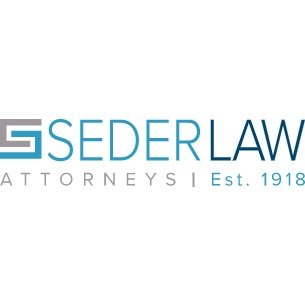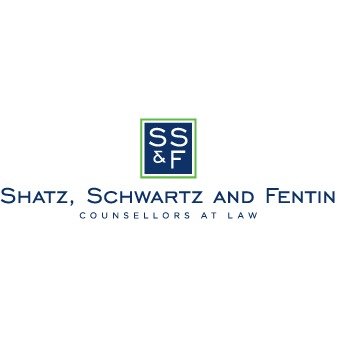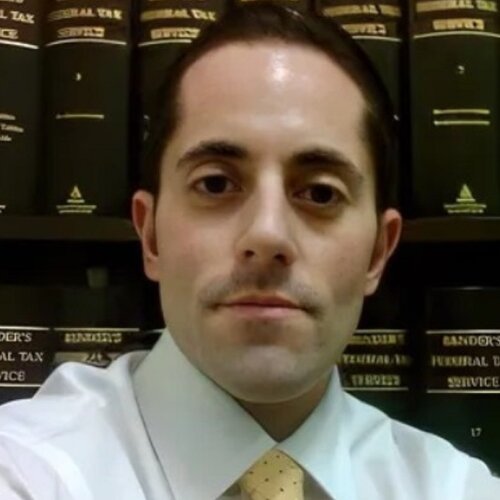Best Probate Lawyers in Massachusetts
Share your needs with us, get contacted by law firms.
Free. Takes 2 min.
Or refine your search by selecting a city:
List of the best lawyers in Massachusetts, United States
United States Probate Legal Questions answered by Lawyers
Browse our 1 legal question about Probate in United States and read the lawyer answers, or ask your own questions for free.
- My husband passed away five years ago. We have a property in th Philippines and I would like to transfer everything to my child. We are now residing in California, as U.S. citizens and my late husband a Filipino citizen.c
- How can I transfer Title on the property to my child?
-
Lawyer answer by Recososa Law Firm
Hello: We are sorry to hear about the passing of your husband, and we extend our deepest condolences. Regarding your concern, since your husband was a Filipino citizen and you are now both U.S. citizens residing in California, the property...
Read full answer
About Probate Law in Massachusetts, United States
Probate law in Massachusetts governs the legal process that occurs after someone passes away. The probate process involves proving that a deceased person’s will is valid, appointing a personal representative (also known as an executor), identifying and inventorying the person’s property, paying debts and taxes, and ultimately distributing the remaining assets according to the will or state law if there is no will. Probate in Massachusetts is overseen by the Probate and Family Court, which ensures that estates are handled fairly and in accordance with state statutes. The process can range from straightforward to quite complex, depending on the existence of a will, the kinds of assets involved, and whether any disputes arise between heirs or creditors.
Why You May Need a Lawyer
While not every probate case in Massachusetts requires a lawyer, many people find legal help invaluable at various points in the process. Common situations where an attorney’s guidance is helpful include:
- When there is a dispute among heirs or beneficiaries over the distribution of the estate
- If the estate is large or contains complex assets such as businesses, intellectual property, or real estate in multiple states
- When the deceased did not leave a will (intestate probate)
- If there are concerns about the validity of the will
- When there are significant debts or tax issues to resolve
- If court filings, deadlines, and procedures seem confusing and overwhelming
- If you are the personal representative and are worried about your legal responsibilities and potential liability
A lawyer can clarify your rights and obligations, help with paperwork and filings, minimize errors or delays, and represent you in court if necessary.
Local Laws Overview
Probate in Massachusetts is governed by the Massachusetts Uniform Probate Code (MUPC). Here are key aspects of local probate laws:
- The Probate and Family Court Department has jurisdiction over probate matters.
- Massachusetts allows for both informal and formal probate procedures. Informal probate is typically quicker and less costly but is only available if there are no disputes and all parties agree.
- The named personal representative (executor) is responsible for managing the estate, with duties set by state law.
- If a person dies without a will (intestate), Massachusetts statutes dictate how assets are distributed among surviving relatives.
- Heirs, creditors, and other interested parties must be notified according to specific procedures and deadlines.
- Massachusetts requires filing of an inventory of estate assets as well as periodic reports to the court.
- Estate taxes may apply depending on the value and nature of the estate.
- The law provides methods to resolve any disputes among family members, creditors, or other parties.
Local probate rules and required forms can vary by county, so it is important to work with the court in the county where the deceased resided.
Frequently Asked Questions
What is probate, and when is it required in Massachusetts?
Probate is the legal process used to settle an estate after someone dies. In Massachusetts, probate is required when the deceased owns assets in their name alone, such as real estate, bank accounts, or personal property that does not have a beneficiary designation.
How long does the probate process take in Massachusetts?
Probate can take anywhere from several months to over a year, depending on the complexity of the estate, whether there is a will, potential disputes, and how quickly the court and parties handle the necessary steps.
What is the difference between informal and formal probate?
Informal probate is a simplified process that is quicker and less expensive, suitable when there are no disputes or complex issues. Formal probate is used when the estate is complicated or contested, and it involves more court supervision and hearings.
Do all assets have to go through probate?
No. Assets with named beneficiaries, such as life insurance or retirement accounts, joint accounts, and property held in trust, typically bypass probate and go directly to the beneficiary.
Who can be appointed as a personal representative (executor)?
A personal representative is usually named in the decedent’s will. If there is no will, the court appoints someone, generally a surviving spouse or adult child, subject to the consent of other interested parties.
How are debts and taxes handled during probate?
The personal representative must use estate assets to settle debts and taxes before distributing assets to beneficiaries. Creditors must make claims against the estate within a limited period or forfeit their claims.
Is there a way to avoid probate in Massachusetts?
Yes. Estate planning tools such as revocable trusts, joint ownership with right of survivorship, and beneficiary designations can help assets pass directly to heirs without probate.
What happens if someone dies without a will in Massachusetts?
If there is no will, the estate is distributed according to Massachusetts intestacy laws, which prioritize spouses, children, and other close relatives. The court will appoint a personal representative to manage the estate.
Are there fees associated with probate in Massachusetts?
Yes. Filing fees, court costs, and fees for personal representatives and attorneys may apply. The costs depend on the size and complexity of the estate and the type of probate process used.
Can probate be contested?
Yes. Interested parties may contest the validity of a will, raise objections to the actions of the personal representative, or dispute the distribution of assets. The Probate and Family Court will resolve these disputes.
Additional Resources
Several organizations and agencies can help individuals seeking more information about probate in Massachusetts:
- Massachusetts Probate and Family Court - Oversees probate matters statewide.
- Massachusetts Bar Association - Provides lawyer referrals and informational resources.
- Local legal aid organizations - Offer guidance to those who qualify for assistance.
- State and county law libraries - Provide free access to probate forms, rules, and guides.
- Massachusetts Registry of Deeds - Useful for real estate matters during probate.
Next Steps
If you believe you will be involved in the probate of a Massachusetts estate or are already facing probate issues, consider the following actions to protect your interests and ensure an orderly process:
- Gather all available documentation about the decedent’s assets, debts, and will, if any.
- Contact the Massachusetts Probate and Family Court in the county where the decedent lived to begin the process or obtain information on requirements.
- If needed, consult with a qualified probate attorney who can evaluate your situation, explain your rights, and guide you through the appropriate legal process.
- Follow all court deadlines and requirements diligently to avoid delays or complications.
- Make use of local and state resources, including legal aid and court self-help centers, for additional support and guidance.
Dealing with probate can be an emotional and challenging experience, but with sound information and the right assistance, you can successfully navigate the process and ensure that your loved one’s wishes, or the law, are followed.
Lawzana helps you find the best lawyers and law firms in Massachusetts through a curated and pre-screened list of qualified legal professionals. Our platform offers rankings and detailed profiles of attorneys and law firms, allowing you to compare based on practice areas, including Probate, experience, and client feedback.
Each profile includes a description of the firm's areas of practice, client reviews, team members and partners, year of establishment, spoken languages, office locations, contact information, social media presence, and any published articles or resources. Most firms on our platform speak English and are experienced in both local and international legal matters.
Get a quote from top-rated law firms in Massachusetts, United States — quickly, securely, and without unnecessary hassle.
Disclaimer:
The information provided on this page is for general informational purposes only and does not constitute legal advice. While we strive to ensure the accuracy and relevance of the content, legal information may change over time, and interpretations of the law can vary. You should always consult with a qualified legal professional for advice specific to your situation.
We disclaim all liability for actions taken or not taken based on the content of this page. If you believe any information is incorrect or outdated, please contact us, and we will review and update it where appropriate.
Browse probate law firms by city in Massachusetts
Refine your search by selecting a city.












